Lots of requests for a "step-by-step" guide to where we are with the EU-UK negotiations.
So here you go - short thread summarising the essential context & key points / issues:
More from Economy
Does raising the minimum wage reduce the number of low-wage jobs?
No.
"We also find no evidence of disemployment when we consider higher levels of minimum wages."
https://t.co/vlgagEHeyy
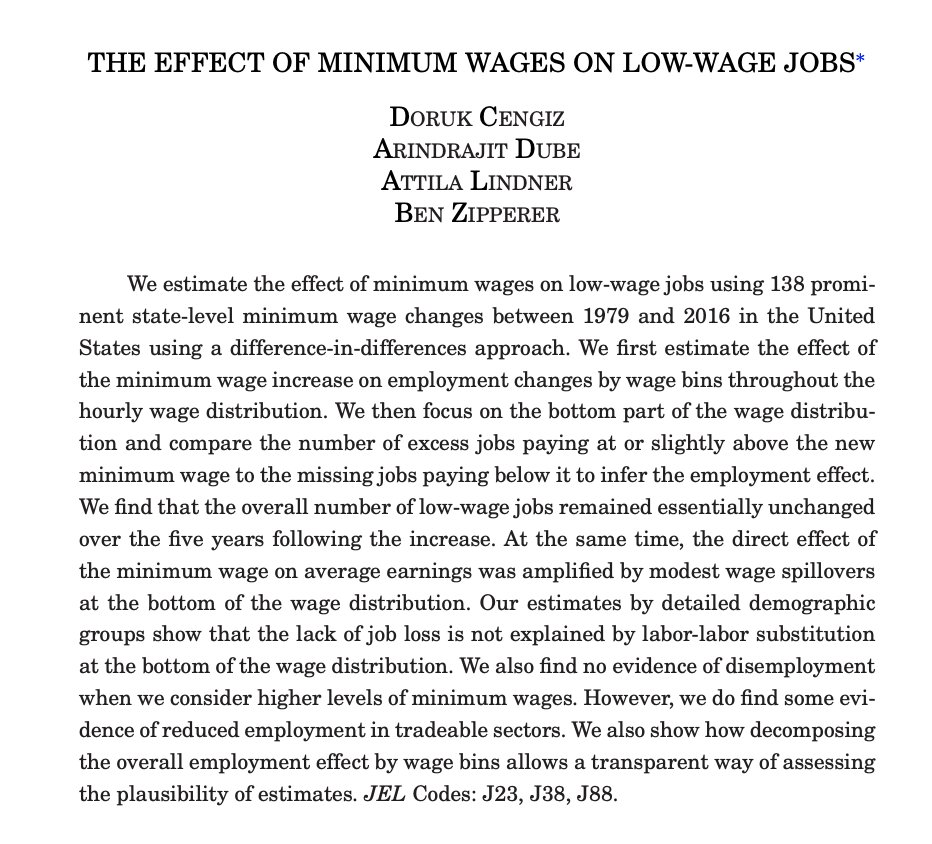
Minimum wage increases reduce crime.
https://t.co/1G1clXqF9t
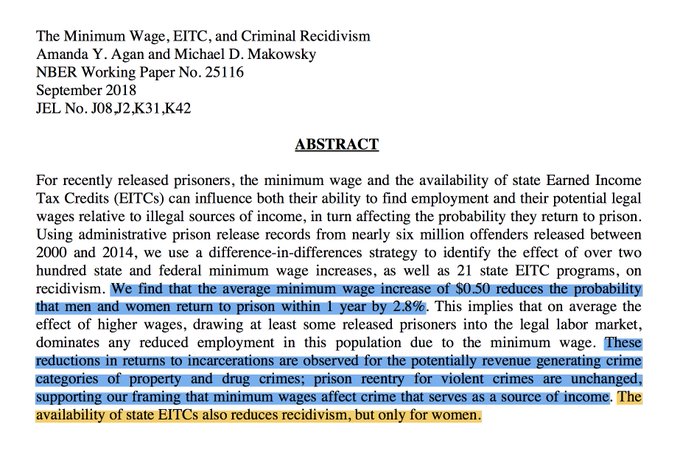
When you increase the minimum wage, you decrease infant mortality among poor families.
https://t.co/iwW1FDsLYG
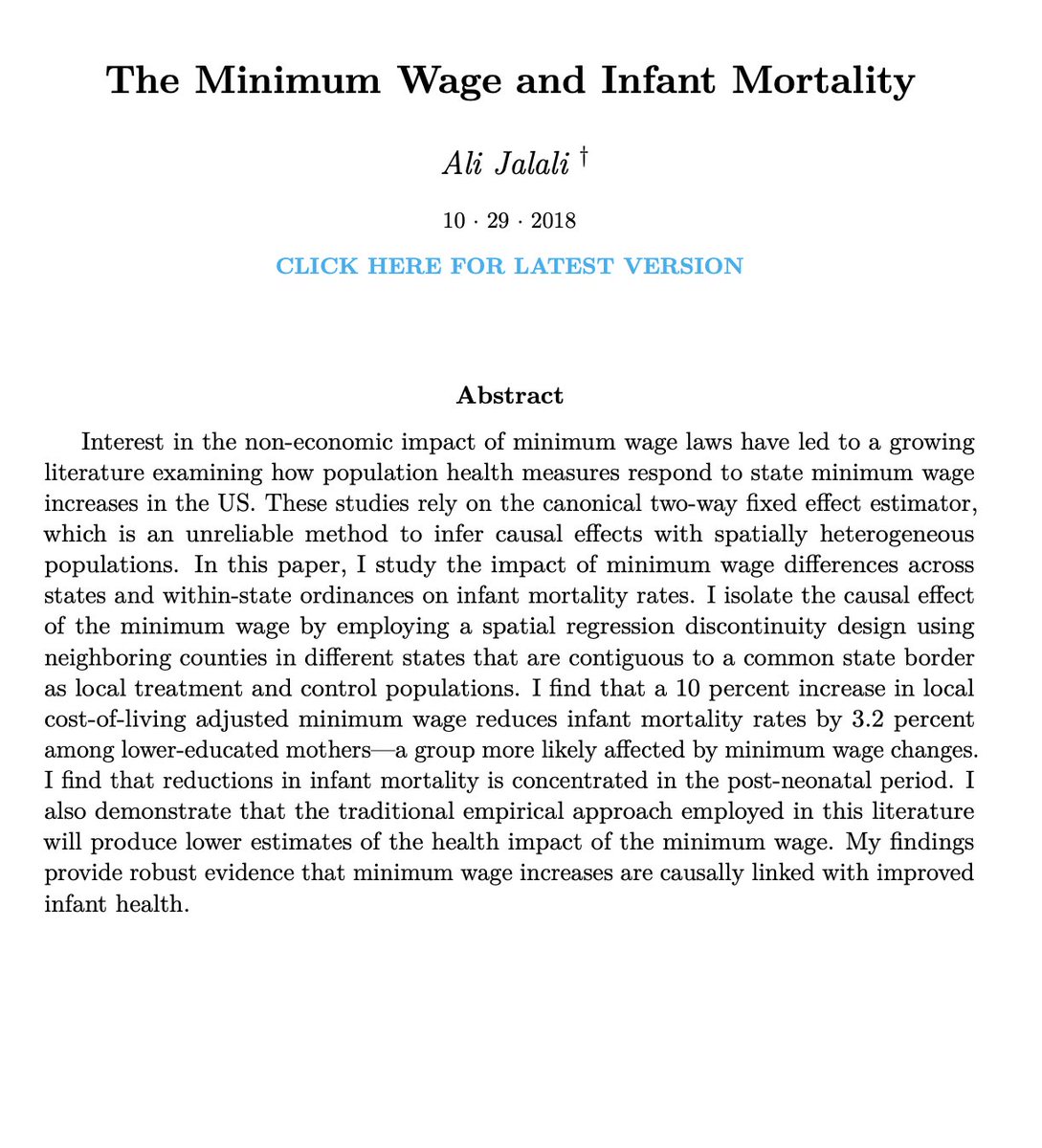
Increasing the minimum wage improves kids' health.
https://t.co/66DLHERpOJ
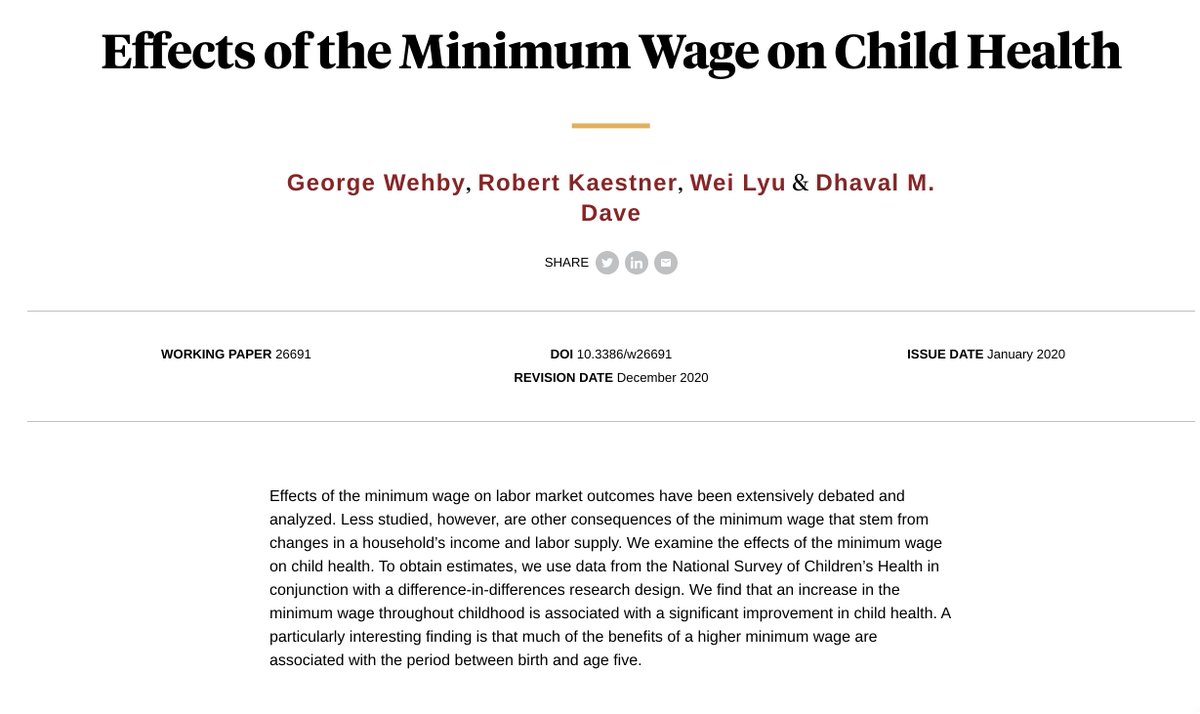
The minimum wage reduces racial income inequality.
https://t.co/wkn9Ajotlx
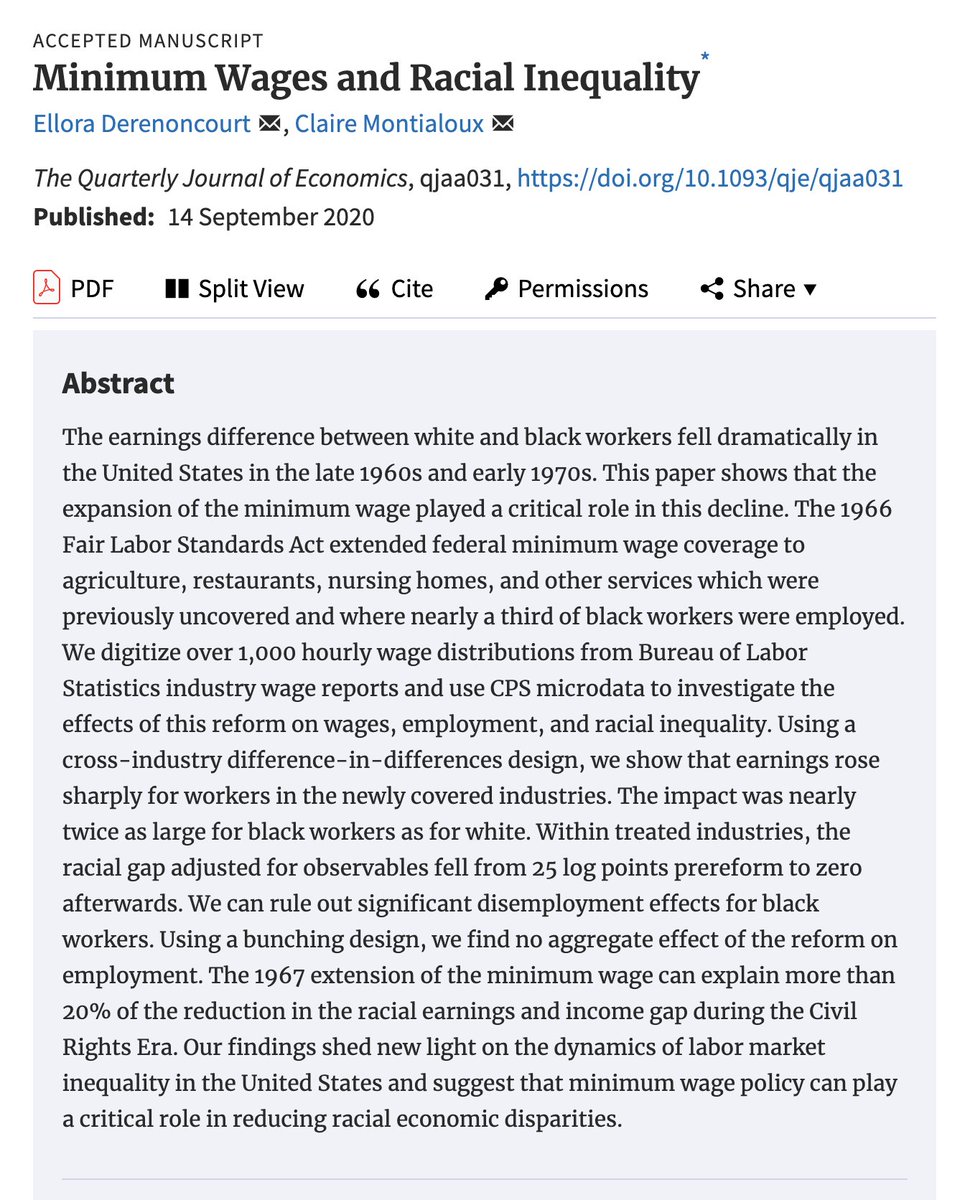
No.
"We also find no evidence of disemployment when we consider higher levels of minimum wages."
https://t.co/vlgagEHeyy

Minimum wage increases reduce crime.
https://t.co/1G1clXqF9t

When you increase the minimum wage, you decrease infant mortality among poor families.
https://t.co/iwW1FDsLYG

Increasing the minimum wage improves kids' health.
https://t.co/66DLHERpOJ

The minimum wage reduces racial income inequality.
https://t.co/wkn9Ajotlx

It's always been detached, and it's always made the real economy worse.
[THREAD] 1/10
What is profit? It's excess labor.
You and your coworkers make a chair. Your boss sells that chair for more than he pays for the production of that chair and pockets the extra money.
So he pays you less than what he should and calls the unpaid labor he took "profit." 2/10
Well, the stock market adds a layer to that.
So now, when you work, it isn't just your boss that is siphoning off your excess labor but it is also all the shareholders.
There's a whole class of people who now rely on you to produce those chairs without fair compensation. 3/10
And in order to support these people, you and your coworkers need to up your productivity. More hours etc.
But Wall Street demands endless growth in order to keep the game going, so that's not enough.
So as your productivity increases, your relative wages suffer. 4/10
Not because the goods don't have value or because your labor is worth less. Often it's actually worth more because you've had to become incredibly productive in order to keep your job.
No, your wages suffer because there are so many people who need to profit from your work. 5/10
[THREAD] 1/10
I know people think this is fun but -- why do we have a stock market? So productive firms can raise capital to do useful things. Detaching stock price from fundamental value (Gamestop is now worth almost as much as Best Buy) makes the markets serve the real economy worse.
— Josh Barro (@jbarro) January 27, 2021
What is profit? It's excess labor.
You and your coworkers make a chair. Your boss sells that chair for more than he pays for the production of that chair and pockets the extra money.
So he pays you less than what he should and calls the unpaid labor he took "profit." 2/10
Well, the stock market adds a layer to that.
So now, when you work, it isn't just your boss that is siphoning off your excess labor but it is also all the shareholders.
There's a whole class of people who now rely on you to produce those chairs without fair compensation. 3/10
And in order to support these people, you and your coworkers need to up your productivity. More hours etc.
But Wall Street demands endless growth in order to keep the game going, so that's not enough.
So as your productivity increases, your relative wages suffer. 4/10
Not because the goods don't have value or because your labor is worth less. Often it's actually worth more because you've had to become incredibly productive in order to keep your job.
No, your wages suffer because there are so many people who need to profit from your work. 5/10




















